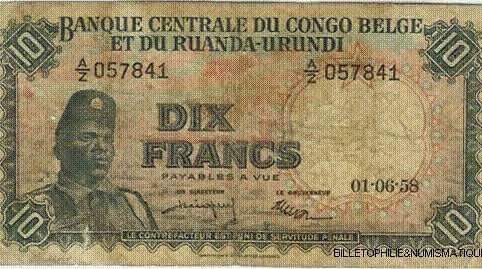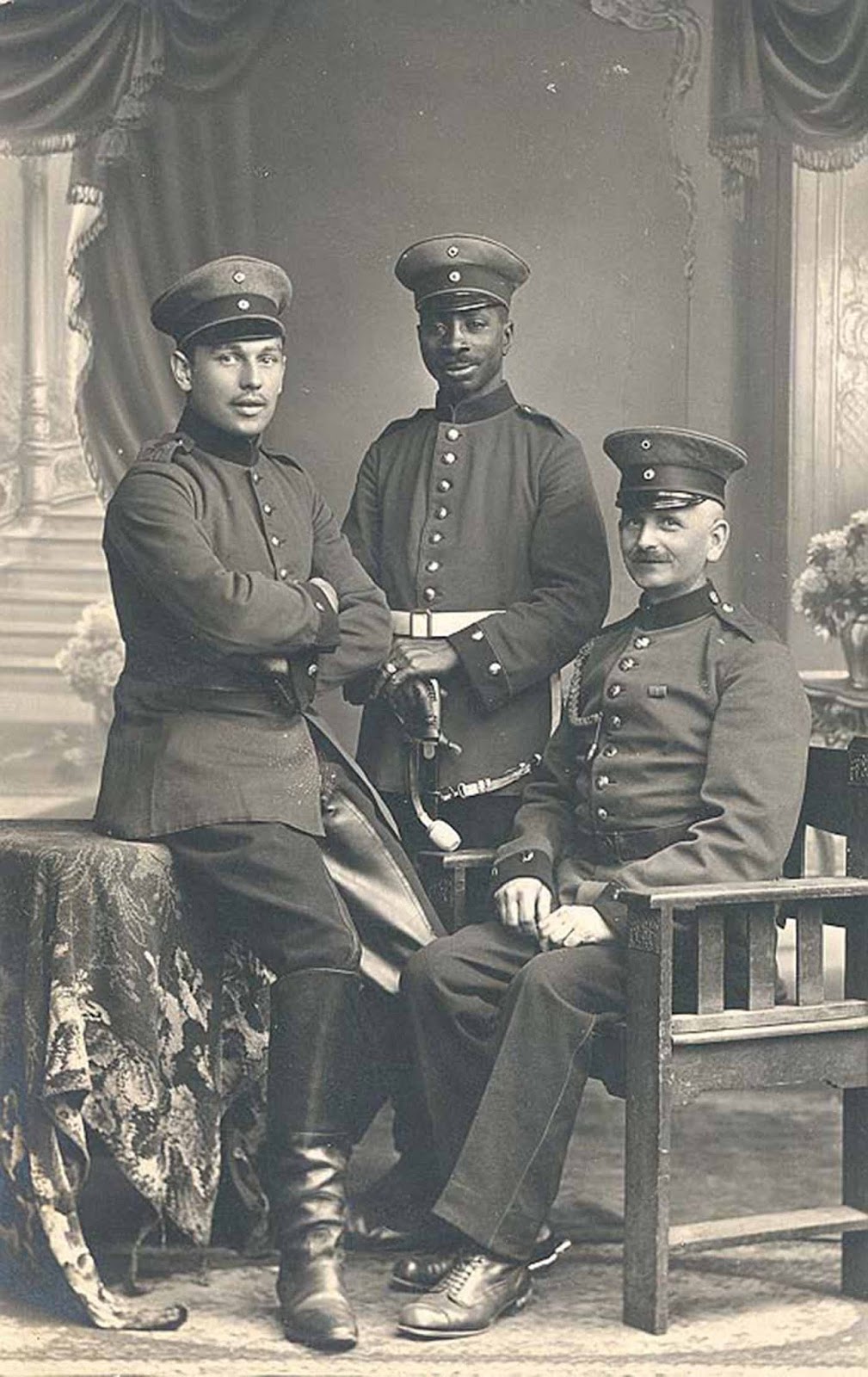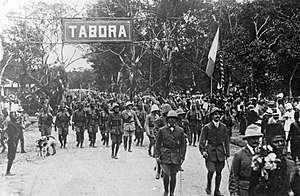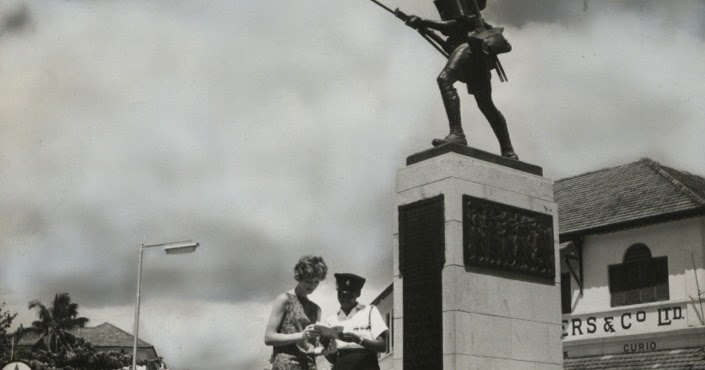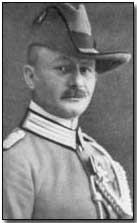Nyarugusu, Tanzania
Source : Tanganyika TV
SHUJAA TOKA TARAFANI FIZI Wakati huu wa kumbukumbu la Vita vya Kwanza vya Dunia (Première Guerre mondiale ) vya 1914-1918 ambavyo uitwa pia "Vita vikuu" (Grande guerre),tumkumbuke afisa (officier) shujaa toka Fizi wa Force Publique ya Congo-Belge,1er Sergent Major Mbavu Ndogo Michel (wengine wanamwita Mbavu Moya).
Kwa mwaka wa 1916, Ubeljiji (Belgique) iliamua kufukuza Wajermani katika inchi zao za ukoloni hasa Urundi (Burundi, kwa leo) na Tanganyika (Tanzania, kwa leo).Kamanda Mkuu wa Force Publique aliitwa Jemadari Charles Henri Marie Ernest Tombeur.
Sergent Mbavu Ndogo alikuwa kamanda wa kikosi kilichoitwa "Brigade du sud ". Le 6 juin 1916, alivamia Usumbura (Bujumbura, kwa leo) na kufukuza wa Allemands, chini ya uongozi wa afisa mbeleji Lieutenant-Colonel Frédérick Olsen.Tarehe 27 juillet 1916, Sergent Mbavu Ndogo kazibiti Kigoma.
Hapo Le 28 juillet 1916, akakamata Ujiji. Le 19 septembre 1916 akazibiti Tabora chini ya uongozi wa Général Tombeur. Le 9 octobre 1916, akadhibiti Mahenge chini ya uongozi wa Afisa mwengine wa kibeleji Lieutenant-Colonel Armand Huyghe. Sergent Mbavu Ndogo aliwafukuza wa Allemands Burundi na Tanzania. Général Tombeur alipewa tunzo kama "Baron Charles Tombeur de Tabora".
Lieutenant Colonel kapewa tunzo kama "Chevalier Armand de Mahenge". 1er Sergent Major Mbavu Ndogo kakumbukwa kwa mwaka wa 1958 baada ya Vita vya pili vya dunia (Deuxième Guerre mondiale 1940-1945) ambako huyo afisa shujaa wa RDC alipigana mara tena zidi ya Wajermani.
Kama tunzo : 1) Alipewa pete ya 1er Sergent Major wa Force Publique na akatumwa Bukavu. 2) Picha yake ilitiwa kwenye noti ya franka kumi (10 Fr) ya Banque Centrale du Congo-Belge et du Ruanda-Urundi. Benki kuu hiyo ilichapisha picha ya 1er Sergent Major Mbavu Ndogo Michel le 01 décembre 1958. 3) Wengine wanasema kwamba pale Bukavu/Kadutu Carrefour palikuwa monument yake.
Kwa leo, hakuna trace hata moja ya monument zaidi ya mitaa ya Kinshasa na Lumbumbashi nchini Free Congo State wakati wa Ukoloni wa mBelgiji kupewa majina ya “Avenue Kigoma”, “Avenue Tabora”, “Avenue Mahenge” na mji wa Boma kuwa na kambi ya kijeshi ya “Camp Tabora”. Mobutu Sese Seko pia alipata kuwa Mcongomani wa kwanza kupewa cheo cha Sajenti pengine ndiyo maana akaamua kumuenzi Master Sajenti Mbavu Ndogo Moya kwa ujasiri kupambana na dola uliyokuwa na nguvu ya Ujerumani chino ya Kaiser.
Source: VITA VYA DUNIA HISTORIA YA MBAVU MOYA
Noti ya kutambua utumishi wa kutukuka iliyotolewa na Mfalme wa Ubelgiji kwa Sajenti-Major Mbavu Ndogo Moya
 Congratulations to 1st Sergent Major Mbavu
Congratulations to 1st Sergent Major Mbavu
Source : Tanganyika TV
VITA VYA DUNIA HISTORIA YA MBAVU MOYA
SHUJAA TOKA TARAFANI FIZI Wakati huu wa kumbukumbu la Vita vya Kwanza vya Dunia (Première Guerre mondiale ) vya 1914-1918 ambavyo uitwa pia "Vita vikuu" (Grande guerre),tumkumbuke afisa (officier) shujaa toka Fizi wa Force Publique ya Congo-Belge,1er Sergent Major Mbavu Ndogo Michel (wengine wanamwita Mbavu Moya).VITA VYA DUNIA HISTORIA YA MBAVU MOYA
Kwa mwaka wa 1916, Ubeljiji (Belgique) iliamua kufukuza Wajermani katika inchi zao za ukoloni hasa Urundi (Burundi, kwa leo) na Tanganyika (Tanzania, kwa leo).Kamanda Mkuu wa Force Publique aliitwa Jemadari Charles Henri Marie Ernest Tombeur.
Sergent Mbavu Ndogo alikuwa kamanda wa kikosi kilichoitwa "Brigade du sud ". Le 6 juin 1916, alivamia Usumbura (Bujumbura, kwa leo) na kufukuza wa Allemands, chini ya uongozi wa afisa mbeleji Lieutenant-Colonel Frédérick Olsen.Tarehe 27 juillet 1916, Sergent Mbavu Ndogo kazibiti Kigoma.
Hapo Le 28 juillet 1916, akakamata Ujiji. Le 19 septembre 1916 akazibiti Tabora chini ya uongozi wa Général Tombeur. Le 9 octobre 1916, akadhibiti Mahenge chini ya uongozi wa Afisa mwengine wa kibeleji Lieutenant-Colonel Armand Huyghe. Sergent Mbavu Ndogo aliwafukuza wa Allemands Burundi na Tanzania. Général Tombeur alipewa tunzo kama "Baron Charles Tombeur de Tabora".
Lieutenant Colonel kapewa tunzo kama "Chevalier Armand de Mahenge". 1er Sergent Major Mbavu Ndogo kakumbukwa kwa mwaka wa 1958 baada ya Vita vya pili vya dunia (Deuxième Guerre mondiale 1940-1945) ambako huyo afisa shujaa wa RDC alipigana mara tena zidi ya Wajermani.
Kama tunzo : 1) Alipewa pete ya 1er Sergent Major wa Force Publique na akatumwa Bukavu. 2) Picha yake ilitiwa kwenye noti ya franka kumi (10 Fr) ya Banque Centrale du Congo-Belge et du Ruanda-Urundi. Benki kuu hiyo ilichapisha picha ya 1er Sergent Major Mbavu Ndogo Michel le 01 décembre 1958. 3) Wengine wanasema kwamba pale Bukavu/Kadutu Carrefour palikuwa monument yake.
Kwa leo, hakuna trace hata moja ya monument zaidi ya mitaa ya Kinshasa na Lumbumbashi nchini Free Congo State wakati wa Ukoloni wa mBelgiji kupewa majina ya “Avenue Kigoma”, “Avenue Tabora”, “Avenue Mahenge” na mji wa Boma kuwa na kambi ya kijeshi ya “Camp Tabora”. Mobutu Sese Seko pia alipata kuwa Mcongomani wa kwanza kupewa cheo cha Sajenti pengine ndiyo maana akaamua kumuenzi Master Sajenti Mbavu Ndogo Moya kwa ujasiri kupambana na dola uliyokuwa na nguvu ya Ujerumani chino ya Kaiser.
Source: VITA VYA DUNIA HISTORIA YA MBAVU MOYA
Noti ya kutambua utumishi wa kutukuka iliyotolewa na Mfalme wa Ubelgiji kwa Sajenti-Major Mbavu Ndogo Moya
